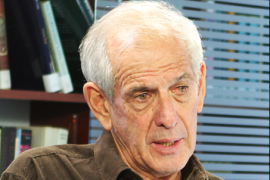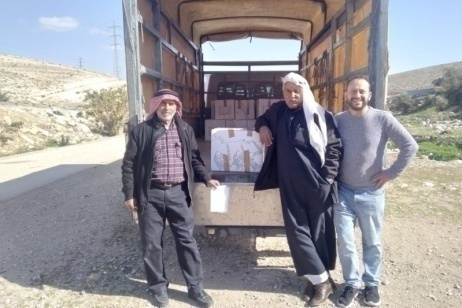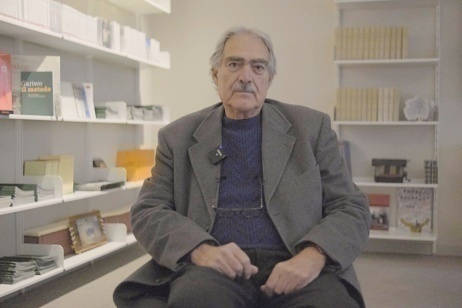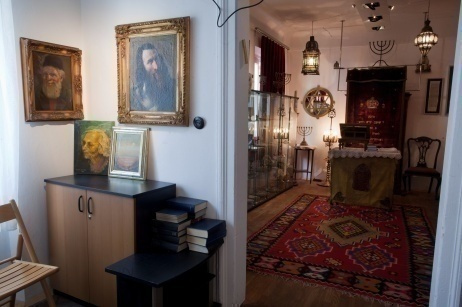We interviewed Yair Auron, professor at the Open University and co-founder of Gariwo-Israel, on the ceremony to be held on next 4 November in the Garden of the Righteous of Neve Shalom to commemorate the Turks who rescued the Armenians in the Metz Yeghern, the Armenians who rescued the Jews in the Holocaust and the Palestinians and Jews who rescued people of the enemy nation in the darkest times of the Middle-Eastern conflict.
What has driven you, as a Jew, to deal with the tragedy of the Armenians?
I started studying the Armenian genocide 25 years ago, drawing from my previous experience as a Holocaust scholar. The most important thing for me now is education. I developed genocide courses for the Israeli universities, where until now unfortunately only the Holocaust has been dealt with. I am the only Israeli professor who teaches genocide cases different from the Shoah.
Why remember the Armenian genocide 100 years on?
We must remember every terrible behaviour of the human being, because unless we remember the victims, we will lose our human values. Genocide unfortunately is a part of human life, but we want to limit it. If we forget about it or deny it, we pave the road to new cases of genocide.
The Armenians often have to deal with the denial of their genocide on the side of Turkey. Why this phenomenon and how can we counter it?
Turkey has problems with memory and identity. Denial policies began with Atatürk and unfortunately are still going on. I was invited to an international conference in Istanbul and I said it openly: “You must recognize the Armenian genocide, other wise you cannot be a democratic society”. Every society has its dark times, as every human being, but we have to face them and deal with them and admit our problems.
What is the difference between seeking recognition and seeking justice for a genocide?
If you do not recognize genocide and speak about justice it is hypocrisy. Recognition is the basis. It is not a matter betweeen the Turks and the Armenians, but of the whole humanity. Does Italy recognize the Armenian genocide?
Yes, it does. There is a resolution of our Chamber of Deputies and Mr. Renzi on the centenary of genocide made a declaration.
Good. Parliamentary recognition is never enough. We need recognition from the governments, like Obama, or the French president, or other governments depending from the relevant Constitutions.
By now the countries that recognize the Armenian Genocide are only 24 out of the 190 countries belonging to the UN. It is a failure of humanity. The message is that if your are strong enough and you are in a good political situation you can commit genocide. In the world there are already too many genocide cases, thousands if not millions people are killed every day.
Why remember the Turkish Righteous in Neve Shalom?
First of all, for the Garden of the Righteous we are creating with Gabriele Nissim the Israeli branch of Gariwo, the forest of the Righteous. The Garden has existed for eight months, the inauguration ceremony where some of you took part into was very moving, Now we go on and we are at the third conference on the history and memory of genocide. We will commemorate the Turks who saved the Armenians and the Armenians who rescued the Jews during Nazi time and there are still many who are unknown, and we are doing our best to discover them. We write on the memorial stones the dedications to those Righteous in four languages: Hebrew, Arabic, English and Turks. “To the Turks who saved the Armenians”. In the Museum there are all the information about the Turkish Righteous. There are over a hundred names, which though are in the Museum and not in the Garden.
Werfel, Wegner. Intellectuals of the then dominating world, sometimes a world that was complicit to genocide, who though opposed that world defying the authorities and conventions of the time. What would you say about those figures?
In my studies I examined the difference between the Righteous who were on the ground and others who brought a testimony without finding themselves on the place. Wegner was an eyewitness. Werfel has written the Forty Days of the Mussa Dagh, a really remarkable book, from far. He gave a key contribution to bear witness to the massacre, but his text maybe was more valuable a sit was written with a great deal of effort in the underground life in the ghetto during Nazi rule. I will talk about this book and its author in the conference. The book was chosen as one of the hundred mist important books of the 20th century. I also wrote his diaries, his underground writings in the ghetto, and he was very important for the children in the ghetto and also for the Jewish underground.
The Armenians are part of the varied composition of the communities which are there in Jerusalem. Would you describe them? Who are they and which role do they play in the Israeli society?
In Israel there are 2000 Armenians and 1500 live in Jerusalem. In some cases they have been there for centuries, in other cases they came as refugees from the genocide. The majority of them in fact are. They are accepted by the community.
What is Abu Mazen doing to stop the “intifada of knives”?
Abu Mazen is weakened and excluded by the extremists also because he is unable to keep his promises also because of our government.
Do you think this movement is due to the rage for the occupation? Or that, as some Haaretz commentators put it, there are some “disrupters” among the very Palestinians who create havoc and provocations within their own people and in the mosques?
I have not delved into the analysis of the Palestinian society. I can say a lot of things about the Israel ione. Palestinians are desperate. Israel occupied their Territories in 1967 and since then 50 years have passed. So there are two generations who grew up under the occupation. Two generations who see no future. These acts of these days are acts of despair, they are very bad, but we Israelis should try to put ourselves in the other side’s shoes. Why should a 16-year old boy take a knife andt try to kill? Because he is in despair, he is in a terrible mental and emotional state. He knows in 99% of cases he will be killed, and he has a very little chance to have an impact on Israel. He can kill somebody, but his remains a desperate gesture. And Israel will not understand. And the Israeli government will remain strong. Of course for this strength Israel is also the most responsible one. Hence the tragedy, for the Israelis and the Palestinians. And also Europe has its own responsibilities, even more responsibilities than the US. It is what we in genocide studies call a “bystander”. Every government in Europe, taken one by one, says it is for the two-state solution. But then practically they all support Bibi Netanyahu. It is a hypocrysy due to political interests. Of course also the culpability of the Holocaust plays a role. But you are doing lots of harm to Israel and Palestine. We are two sick societies and sick societies need help like sick people. We need help to get out of this tragic situation, without hypocrysy. Despite what the single States say, Bibi receives much support from abroad and every day we see the increase of new buildings in the West Bank settlements. And nobody says anything. Anyway I would not call it an “intifada of knives” These are acts of despair.
Is there thus no relationship with what is happening in Syria?
I do not know, but those are really desperate acts. As to Syra, now Assad, who is responsible for thousands deaths and hundreds thousands refugees in six years, seem to enter the spot light again thanks to Putin. I do not know if it can be convenient to Israel, but I know it is wrong morally and humanly. No one wants to act against Assad.
Maybe Assad is important to fight the ISIS.
He is no democratic leader, he is not humanistic, he is a dictator.
Do you think Israel will manage to stop the violence, and how?
Through negotiations. By accepting our own reciprocal responsibilities. Israel did not commit genocide, but it inflicted major evil to the Palestinians. We must admit it. And the same must be done by the Palestinians. We must have a dialogue. For example in Neve Shalom we have people whose relatives were rescued by the humane acts of members of the other people and this heritage must be kept and communicated.
What drives you to work in Neve Shalom?
My duty as a human being.






